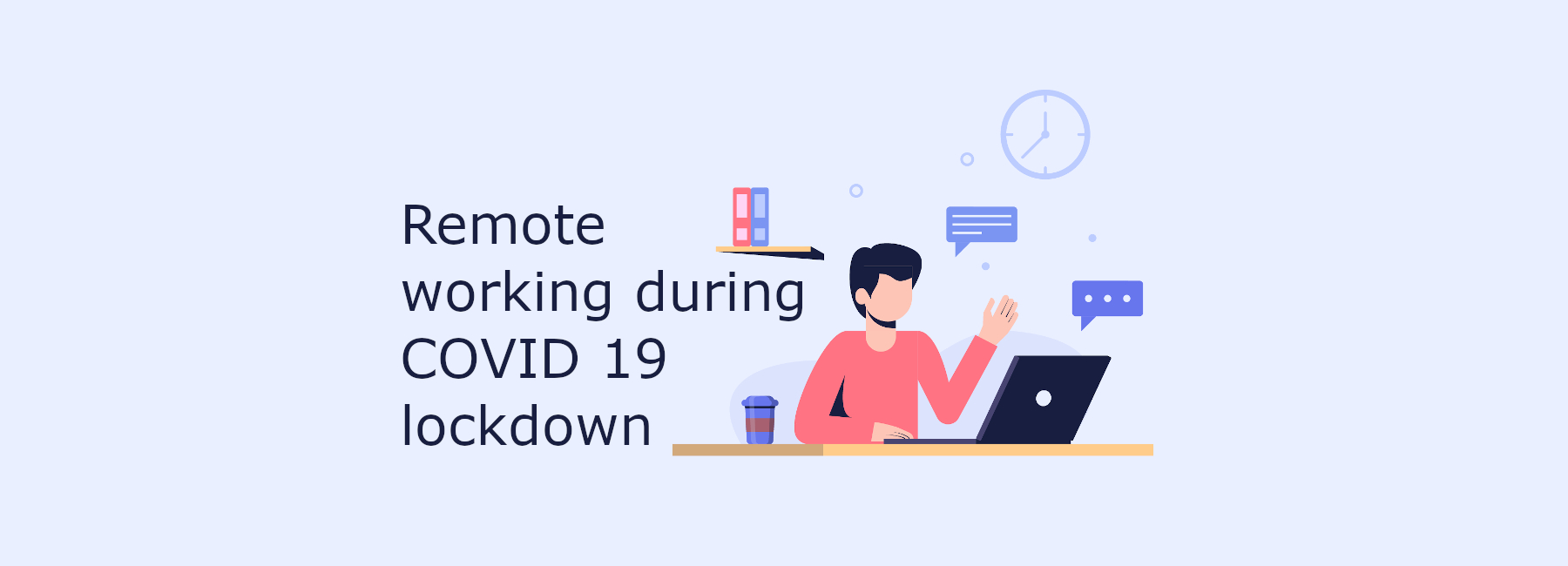
Remote working during COVID 19 Lockdown
Remember the days when you were in work or driving around thinking ‘oh I wish I could work from home’. Well now, for the majority of people it is a reality.
There has been plenty shared on the internet about the trials and tribulations of home/remote working and in these unprecedented times I think a lot of people have come to realise it is by no means as simple or as exciting as it sounds!
As part of the Training Officer team we approach this from two sides. We are working from home however, to be completely transparent, we’re based from home all the time so not much change there you may think, however being based from home is by no means the same as working from home. The change for us has been moving from learner visits in company and college to the learning and assessment being 100% remote, ensuring our apprentices continue to learn and work as their situations evolve. We’ve had to be really flexible in our approach because every learner is different – to a certain extent that is where those completing an apprenticeship through us benefit, as we don’t use any one-size-fits-all methods. We are working on an individual basis with those that are still in-company using remote sessions, those working from home and those who are furloughed and still continuing with their learning.
Mark blogged recently with some points on how to get set up to achieve if working or learning from home. These were helpful especially for the young people we work with who may have gone from a very practical work environment to being home based. Everyone’s environment at home is different, with varying levels of privacy, access to computers and levels of distractions so any tips on how to make working or learning from home a bit more manageable are useful.
So, from someone who has spent the last few years based from home, but is currently working fulltime at home, here are my 10 top tips;
- Stick to a routine. I save my lie in’s for the weekend in order to really appreciate them. Start and finish work when you normally would, have breakfast as if you were going to work on a normal day and make sure you stop for lunch for at least ½ hour.
- Try to ensure that you have a good internet connection. Difficult I know as you may not be in control of it however there are a few things you can do to help. I found I had to move closer to the Wi-Fi hub in order to get the best strength signal. It is also a good idea to turn off the Wi-Fi on devices you are not using as it can help with the speed. I find nothing more frustrating than having your internet dropping out when you are trying to work so doing all you can to make it stable will help.
- Ensure that you have somewhere quiet to work. Again, difficult if you are in a shared house however try and find your spot. Avoid distractions by turning off devices that are not needed for work as this will aid concentration.
- Set yourself up so you avoid any physical pains or strains. Try to sit upright and check your posture regularly. I find it best to work at a desk (if you can) and also raise up the screen if possible.
- Plan. Always have a good clear plan for the day/week as it will enable you to see the progress you have made. Remember not everything has to be done in one day and you should always remain flexible in case something important comes in and takes priority.
- Stay productive. I find lists are a good way of doing this. A long list as to what I need to achieve that week and a short list of what I want to complete that day. I love the feeling of satisfaction when I cross things off my list!
- Take regular breaks. I get away from the computer for a couple of minutes every hour as I find it helps my focus when at the computer.
- Mix it up. I try to avoid being sat down all the time, standing when on a call or when doing an aspect of work that isn’t at the computer. If your work or situation does not allow you stand up, try to incorporate some stretching exercises into your seated position as this helps blood flow and will break up the inactive time.
- Offset your work hours. I look to offset my hours once or twice a week, starting an hour earlier then finishing an hour early. I appreciate this will not work or even be possible for everyone but I find finishing slightly earlier in the day gives me a physiological boost.
- Stay hydrated. It is very easy to forget to drink fluids when you are in the moment and working hard!
As the Covid-19 pandemic continues to disrupt our daily lives and may do for some time to come, working remotely has become the norm. The way you work is something personal to you so these are just a few ideas from my experience. As learners/apprentices, I do appreciate that this is a completely new way of working and that you may be finding the situation difficult at times. I know that I may not have covered everything, but I hope you have found some if not all of the tips useful.
Written by Rob, Training Officer
